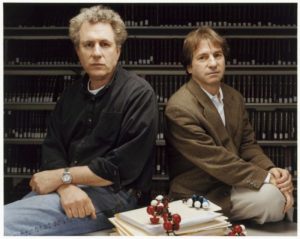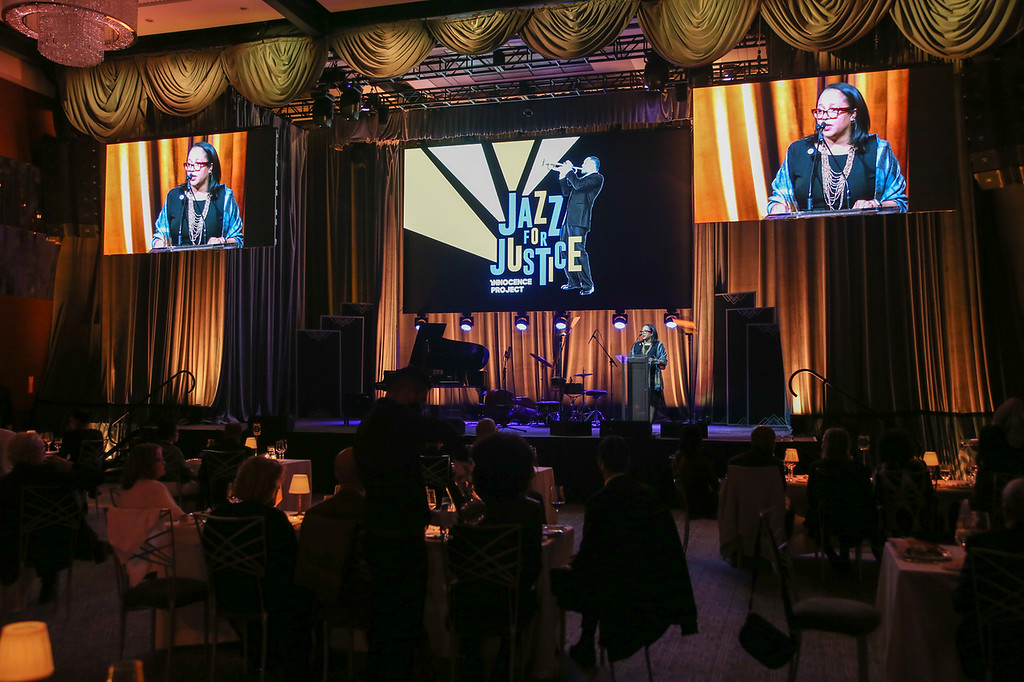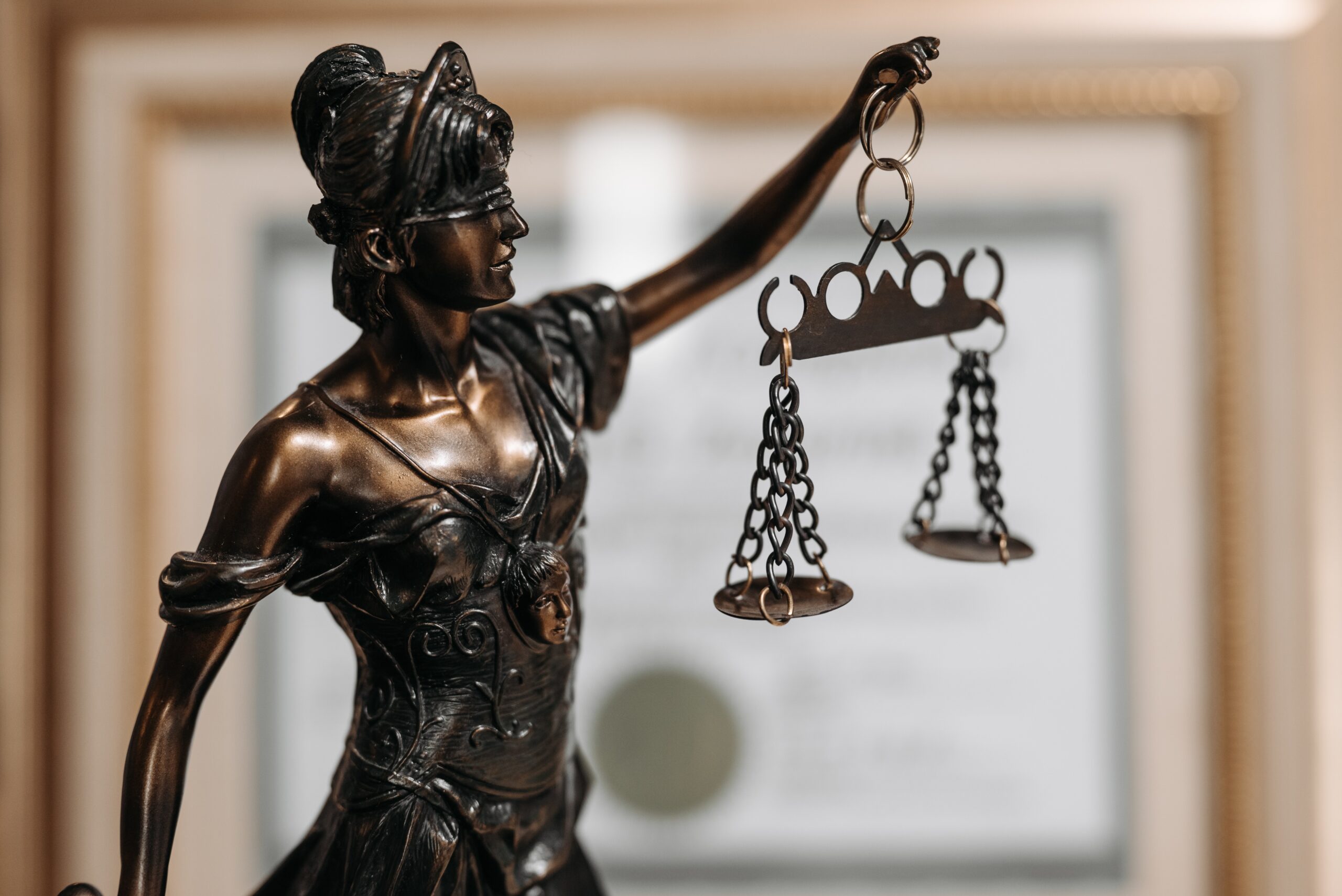In the Vanguard of Justice Reform: The Road Ahead
As the Innocence Project heads into its 30th year, we're laying out our new plans to advance justice.
01.18.22 By Christina Swarns
As we enter the new year, and our organization marks its 30th anniversary, I want to reflect on the moment in which we find ourselves today and the challenges and opportunities that lie ahead of us.
When our organization was created three decades ago by two visionary attorneys, Barry Scheck and Peter Neufeld, there was no meaningful understanding of the scope of the problem of wrongful conviction in this country. Though public defenders and many in poor, Black and brown communities who bore the brunt of “tough-on-crime” laws knew that people were being improperly convicted of crimes, there was deep public skepticism around the idea that our criminal legal system ensnared the innocent.

Peter Neufeld (left) and Barry Scheck (right) co-founded the Innocence Project in 1992.
So, when DNA technology emerged in the late 1980s and Barry and Peter began using it to scientifically prove innocence, they exposed the devastating and surprisingly common injustices of the criminal legal system and illustrated the need for wholesale transformation. As a result, the landscape of the criminal legal system began to shift.
Fast forward 30 years. The cry for racial justice and equity — amplified by the international protests seen in 2020 — shows that the American public is acutely aware that the criminal legal system is in dire need of overhaul. Powerful evidence of innocence now changes the trajectory of a case — like those of Pervis Payne, Julius Jones, and Rodney Reed — and fuels influential movements for change. Indeed, in the last two years alone, we — in partnership with our allies in the Innocence Network — were able to pass more than 30 separate laws after more than 10,000 innocence advocates contacted 22,000 lawmakers, and made 2,700 phone calls pressing public officials.
Thus, as much as DNA testing exposed how unreliable our criminal legal systems can be, our work over the past 30 years has put a magnifying lens on many additional shortcomings in the system and helped us to develop a transformational plan for reform.
Expanding, Strengthening, and Innovating
So what does that mean for the Innocence Project going forward? We spent much of the last year asking ourselves this very question, and we have developed a new set of priorities to meet the very real challenges of this moment. Organizing our work around three foundational pillars — Restoring Freedom, Transforming Systems, and Advancing the Movement — we will expand our exoneration efforts, strengthen our scientific initiatives, challenge the ways in which racial bias drives so many of our wrongful conviction cases, and more.
We will broaden our intake criteria to include a limited number of non-DNA cases. Although, historically, DNA cases have made up the majority of our caseload, we know that countless innocent people are wrongfully convicted of crimes where DNA evidence is not available. We will approach these cases with the same tenacity, innovation, and client-centered approach that we brought to our DNA cases.
We will challenge the use of emerging technologies — like ShotSpotter and facial recognition software — in overpoliced communities of color. Because the pervasive use of these often unreliable technologies erodes the presumption of innocence — and, indeed, embraces an unlawful, racialized presumption of dangerousness — we will work with local, grassroots, and national organizations, to address wrongful misdemeanor convictions, capture data around these technologies and develop and implement advocacy and other litigation reforms. We will also engage with the White House Office of Science and Technology Policy to initiate federal forensic science research agendas and establish justice and equity evaluations of emerging technologies in order to understand their potential social impact before they are put to use.

The Innocence Project will challenge emerging technologies, like facial recognition, in over-policed communities of color. (Image: EFF Photos/Flickr)
We will launch an ambitious scientific literacy program to educate system actors — from public defenders, to prosecutors, to judges — about science and the limits of forensic evidence. Because too many attorneys have too little grasp of the foundations of scientific evidence, we believe that, with this program, we can and will reduce the rate of wrongful convictions based on the misapplication of forensic science. This program — which we are undertaking with leaders in the field like the Center for Statistics and Applications in Forensic Evidence (CSAFE) — will help legal professionals understand the basics of the evidence in the cases they handle.
We will work to eliminate the trial penalty — the wide discrepancy between pre-trial, plea-bargain sentence offers and sentences imposed after a conviction at trial. Because this incredibly common practice has a coercive impact on innocent people who may want to exercise their right to a trial, we will pursue state-based legislative campaigns and litigation that create a fairer and more just criminal legal process.
We will launch a comprehensive client needs assessment. Every exonerated or freed person faces a unique set of challenges, and this initiative will help us identify additional avenues of crucial support.
And we will onboard a special advisor on race and criminal justice who will ensure that we remain on the cutting edge of scholarly research and legal decisions and that our cases, policies, and programs advance racial justice.
Bending the Arc
Given this ambitious agenda, it is only fitting that we marked the start of our 30th year with Jazz for Justice, an extraordinary event that brought exonerees and supporters together to celebrate a shared love of jazz music and justice. Jazz artists — from Charles Mingus and Max Roach to Allen Toussaint and Wynton Marsalis — are renowned for rejecting the limitations of the status quo and pushing the bounds of what is possible, in their art and in their world. They have urged every generation to see the world as it should be, not just as it is, and to confront society’s gravest failings.

The Innocence Project kicked off its 30th anniversary celebration with Jazz for Justice. (Image: Matt Cohen/Innocence Project)
And so it is with the building of a true criminal justice system.
As we head into our fourth decade, we embrace our obligation to play a role in transforming the criminal legal system, rooting it in equity and accountability, and centering it on facts and science. We know that in order to be successful, we have to be active participants, not passive observers.
As the late John Lewis said, “When you see something is not right, you must say something. You must do something. Democracy is not a state. It is an act, and each generation must do its part to help build what we called the Beloved Community, a nation and world society at peace with itself.”
We step into 2022 fueled by your energy and enthusiasm and the victories you have helped us win. With you by our side, inspired by our extraordinary clients, and in gratitude to our Innocence Network partners and other allies, we know we can help to bend the moral arc of the universe towards justice.
With deep gratitude,
Christina Swarns
Executive Director, Innocence Project

Leave a Reply
Thank you for visiting us. You can learn more about how we consider cases here. Please avoid sharing any personal information in the comments below and join us in making this a hate-speech free and safe space for everyone.